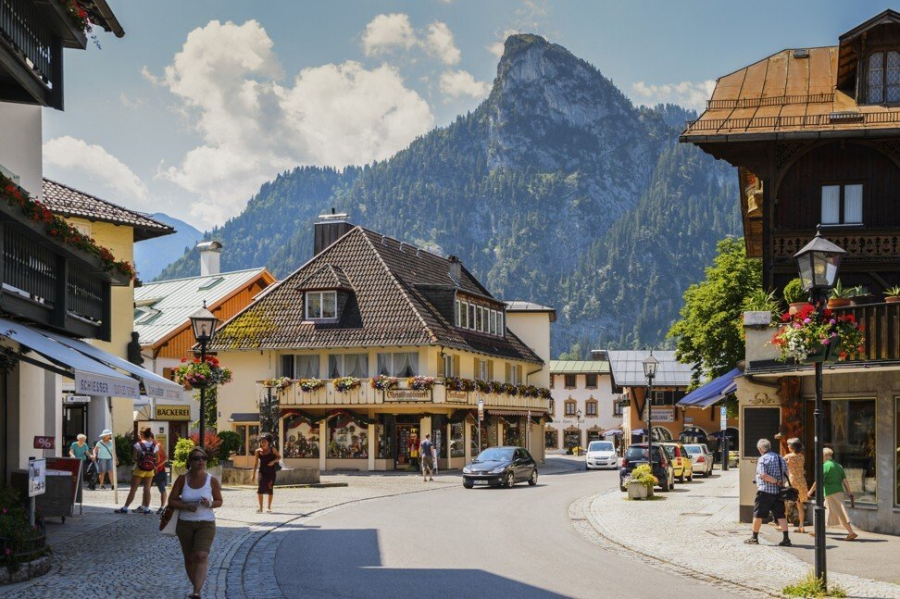In 1634, the playThe PassionIt was first performed in Oberammergau – a small, peaceful village in the Bavarian Alps, southeastern Germany. The story goes that over 400 years ago, when the Swedish army invaded Bavaria, bringing with them the bubonic plague, half the village's population was wiped out in just a few weeks. At the time, no one knew why. The villagers believed they were being punished by God, and so they vowed that if the plague stopped, they would perform the play.The PassionEvery ten years. Since that day, no one in the village has died from the plague again. And the villagers of Oberammergau have kept that promise to this day.

The village of Oberammergau in Bavaria
DramaThe PassionThe Oberammergau village play is considered the world's most successful amateur play, boasting a massive cast of 1,800 adults and 550 children. Since 1680, the play has been performed in ten-year cycles. Thus, every ten years, normal life in the village seems to pause, not only as the villagers eagerly prepare for the play, but also as domestic and international tourists flock to see it. According to a tradition maintained by the people of Oberammergau for centuries, the actors must be born in the village, or have resided there for at least 20 years, or have been married to a villager for more than 10 years.

Adam and Eve in the Garden of Eden, a scene from the 2010 play.
Since 2018, actors have been cast and villagers have begun preparing for the 42nd edition of the play, with thousands of costumes ordered and many men growing beards and long hair. Restaurants and hotels in the area have also begun renovating and redecorating in preparation for the once-a-decade event. The 42nd Oberammergau play is scheduled to run from May 16th to October 4th, 2020, six times a week, and as usual, will last approximately five hours with intermissions. Each performance is expected to attract around 4,500 spectators.
DramaThe PassionIt was last performed in 2010 with a total audience of 515,000 people from around the world.

The scene of crucifixion
However, due to the Covid-19 pandemic, authorities were forced to postpone this decade's play to 2022 because the majority of the audience were over 60 years old, a high-risk group. At the same time, rehearsals were difficult, with some scenes requiring 700 to 800 people on stage simultaneously. Of the 5,200 villagers, approximately 2,500 participated in the play as actors, members of the choir or orchestra, or technicians and backstage staff.

Frederik Mayor played Jesus Christ in The Passion in 2010.
This was not the first time the play had been postponed or canceled. In 1770, Grand Duke Maximilian III of Bavaria banned all plays depicting the Passion of Jesus, but his successor, Karl Theodor, allowed the village of Oberammergau to perform it in 1780. The upheavals of the Napoleonic Wars also led to the 1810 performance being held in 1811 (and 1815); then World War I (1914-1918) caused the 1920 performance to be postponed to 1922; and then World War II (1939-1945) led to the cancellation of the 1940 performance.
Perhaps an event born from one crisis will inevitably become a "victim" of other crises.

 VI
VI EN
EN

































